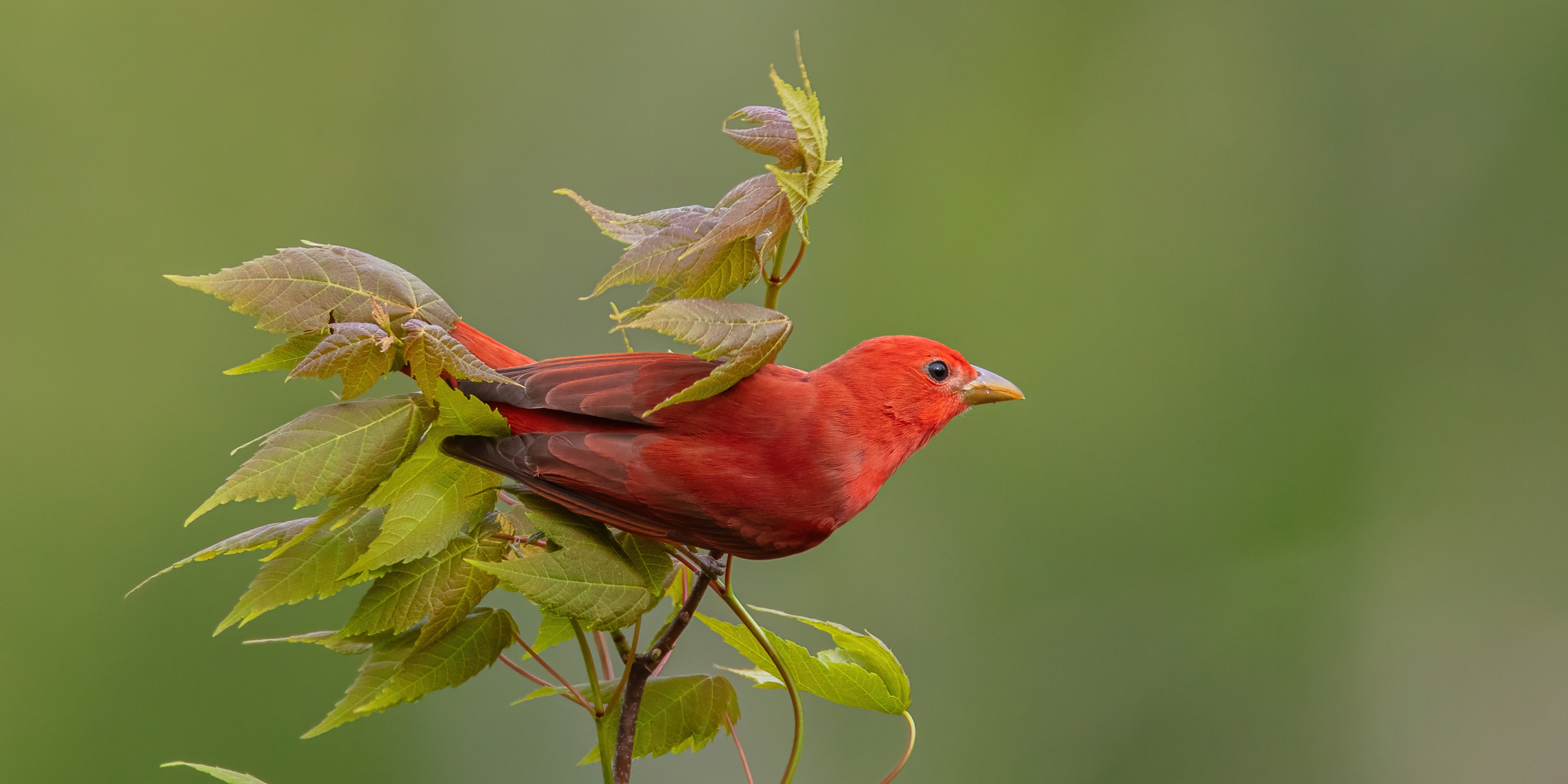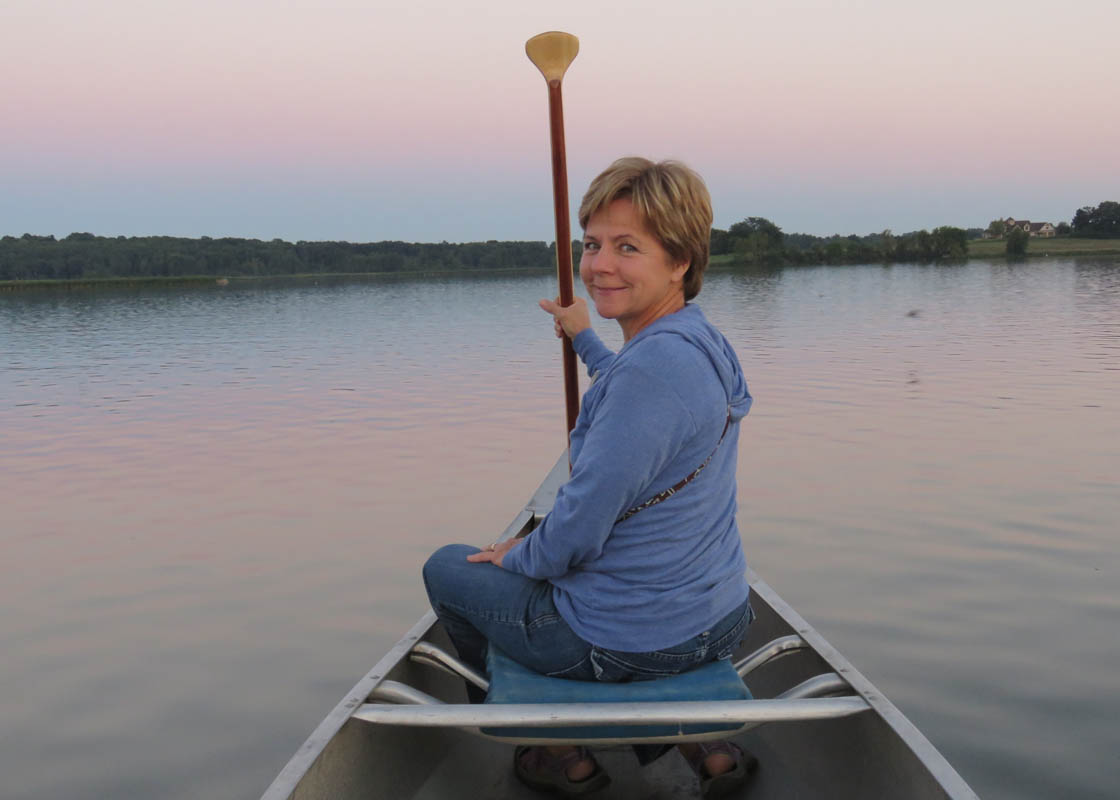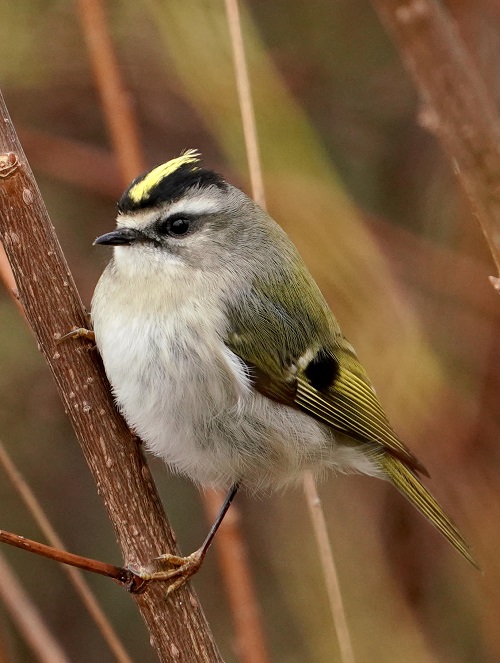By Wendy Schultz
WSO Awards Committee Chair
During this time of many challenges, if there is a GOOD NEWS story to be shared, it is the annual recognition WSO gives to those individuals and organizations that have made outstanding achievements in advancing bird conservation, promoting the field of ornithology and contributing to the Society. Despite the grip of a global pandemic, the year yielded a number of exceptional nominations, and from this list the Board of Directors selected their slate of award recipients via ZOOM back in January.
Ordinarily, these people would be recognized during the Awards presentation at the Annual Spring Convention, but it was decided once again (in the best interest of everyone) to postpone the convention for another year. The good news: the number of COVID cases is going DOWN while the number of vaccinated people is going UP! This gives all of us a bit of HOPE that by the end of summer we might be able to return to a closer-to-normal way of interacting once again. Please hang in there. We WILL honor these outstanding people at some point because they certainly deserve it—so please stay tuned.
In the meantime, here are the WSO 2021 Passenger Pigeon Awardees….
The Samuel D. Robbins Lifetime Achievement Award honors those people who actively contribute to WSO above and beyond having previously received the Silver Passenger Pigeon Award and the WSO Certificate of Appreciation. This year the award goes to WSO Field Trip Co-Chairs Thomas Schultz and Jeff Baughman.
![]()
Jeff Baughman and Tom Schultz
Hard to know where to start with these guys when the beginning feels so long ago—like in the LAST CENTURY long ago. Back when Fond du Lac’s Owen J. Gromme Bird Club was still in existence, still quite vibrant and the very reason they met in the first place. Back when Thomas R. Schultz and Jeffery L. Baughman were incredibly young and agreed to share the job of handling field trips for WSO following the retirement of Ed Peartree.
They took it from there in January of 1987 and they took it seriously, showing both members and non-members of WSO hundreds of THOUSANDS of birds on numerous field trips over the next 34 years. They developed a following—you might even say a fan club—and forged many friendships in short order. They pointed out so many birds, tuned into so many sounds, noticed so many movements in trees, dots in the sky, and shapes in the distant waves that turned out to be something somebody needed on their list for that year.
They took people to all manner of birdy places within the state—and occasionally beyond. Some were old favorites, while others were brand new locations. They pointed out field marks and helped teach bird songs. They did this when binoculars weren’t all that great and spotting scopes expensive. They saw cameras go from Kodachrome to digital, and telephones from a booth to your pocket.
These 2 saw WSO grow in depth and breadth through the digital age, connecting birders so much easier than ever before. They have been the “Welcome Wagon” of WSO, making every outing a good time whether the birds showed up or not. Nor does it seem to matter to the birders if you’ve ever seen the caravan of cars that follow them, no questions asked, to remote locations through blizzard conditions, deep mud or thick fog.
They are as much alike as they are different, and together have been the PERFECT PAIR to lead this organization as Field Trip Co-chairs for 34 terrifically FUN years. WSO is grateful for their service and more than happy to honor them both with the Samuel D. Robbins Lifetime Achievement Award.
The Bronze Passenger Pigeon Award, presented to individuals who have made outstanding contributions in their local communities or in the state to promote field of ornithology through conservation work or organizational efforts this year will go to Aaron Stutz.
Aaron Stutz teaches high school math in Middleton and lives in Lake Mills (Jefferson County) with his wife Nancy, their son Jonas, and their dogs. Many know him as the sharp-eyed birder who regularly finds rare birds and has led numerous field trips for Madison Audubon but behind the scenes is where he really pours his heart and soul into Wisconsin bird conservation.
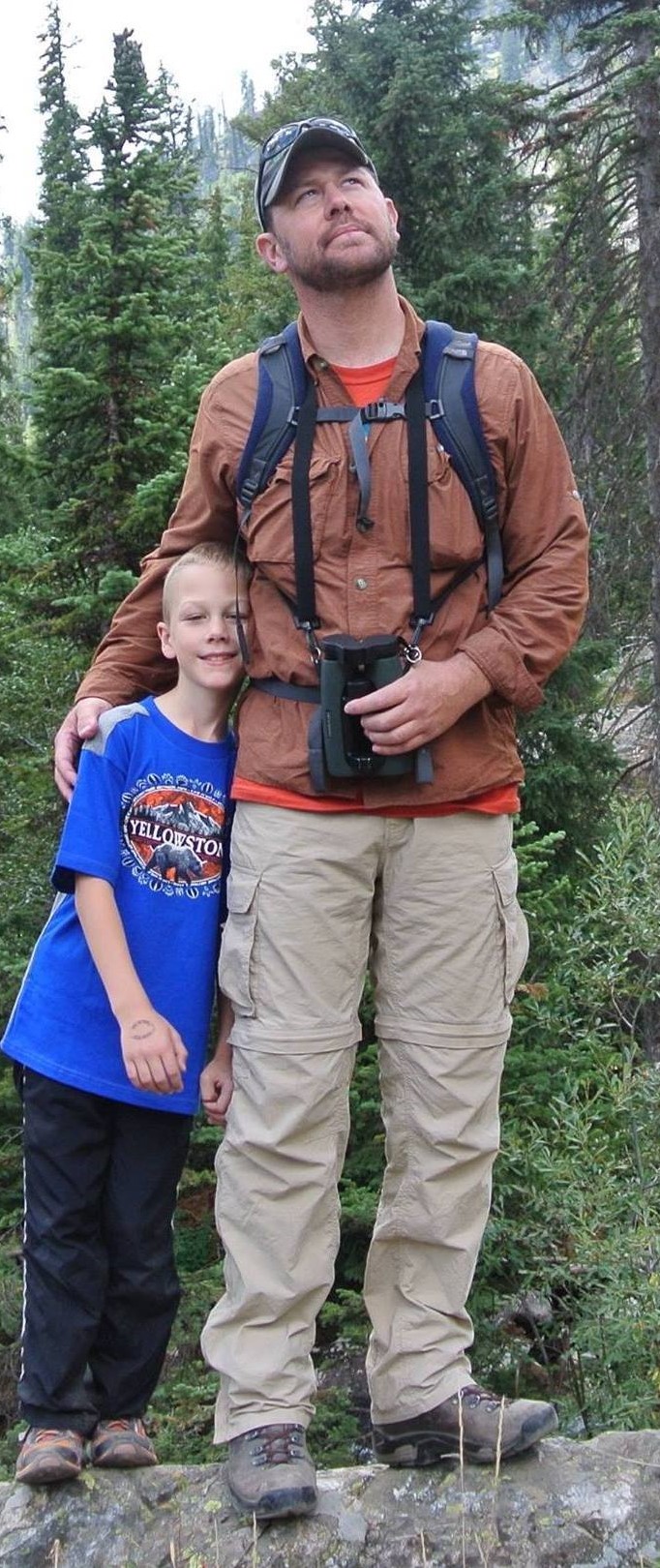
Aaron Stutz with son Jonas
Currently serving on the WSO Records Committee (RC), Aaron spends much of his time managing the flow of rare sightings from eBird to the RC. He plays a critical role in mining eBird for records that merit RC examination and processes the results of committee voting in eBird. Over the past decade, he has probably spent more time editing checklist filters and processing records than anyone else. His skills in math and technology and his knowledge of bird identification and distribution help make Wisconsin one of the nation’s top states in eBird prominence and data quality.
Aaron has invested a TON of TIME into Wisconsin eBird—in fact, if you use eBird across the state and the checklist that pops up looks reasonable for your location and date, it is in large part due to the thousands of hours he has contributed. He co-leads the team of Wisconsin eBird reviewers and volunteers his time to train new reviewers over the phone and through Zoom. Aaron also writes the popular end-of-year recap for Wisconsin eBird.
Just as important was his involvement in the Wisconsin Breeding Bird Atlas II. He was county coordinator for Jefferson and Rusk counties and a prolific surveyor with over 1,600 complete atlas checklists and 140 species confirmed! He is a critical contributor to atlas data review, devoting his time and bird-distributional expertise weekly to reviewing atlas records.
The work Aaron is putting in is largely on the back end and therefore probably unrecognized by many, nevertheless, his work makes him a great ambassador for birds and very much deserving of the WSO Bronze Passenger Pigeon Award.
The Noel J. Cutright Conservation Award, originally called the Green Passenger Pigeon Award, is presented to individuals/groups/organizations that work on behalf of endangered, threatened or common species, promote the establishment, management and protection of bird habitat and educate the public on bird conservation issues. This year the award goes to Charlie Luthin and Richard “Dick” Nikolai.
Charlie Luthin
After a career spanning 43 years, and working almost entirely for non-profit conservation organizations Charlie Luthin decided it was time to retire. He is a man of many firsts. In 1995, he became the first executive director of the Aldo Leopold Foundation. In 1998, he moved on to become the first executive director of the Wisconsin Wetlands Association. He built that organization from one part-time staffer to four staff over five years. Duties included fundraising, program development and wetland protection and education. Successes included new isolated wetlands law (2001), stopping Ashley Furniture from filling a wetland through a lawsuit and publication of the Wetland Restoration Handbook.
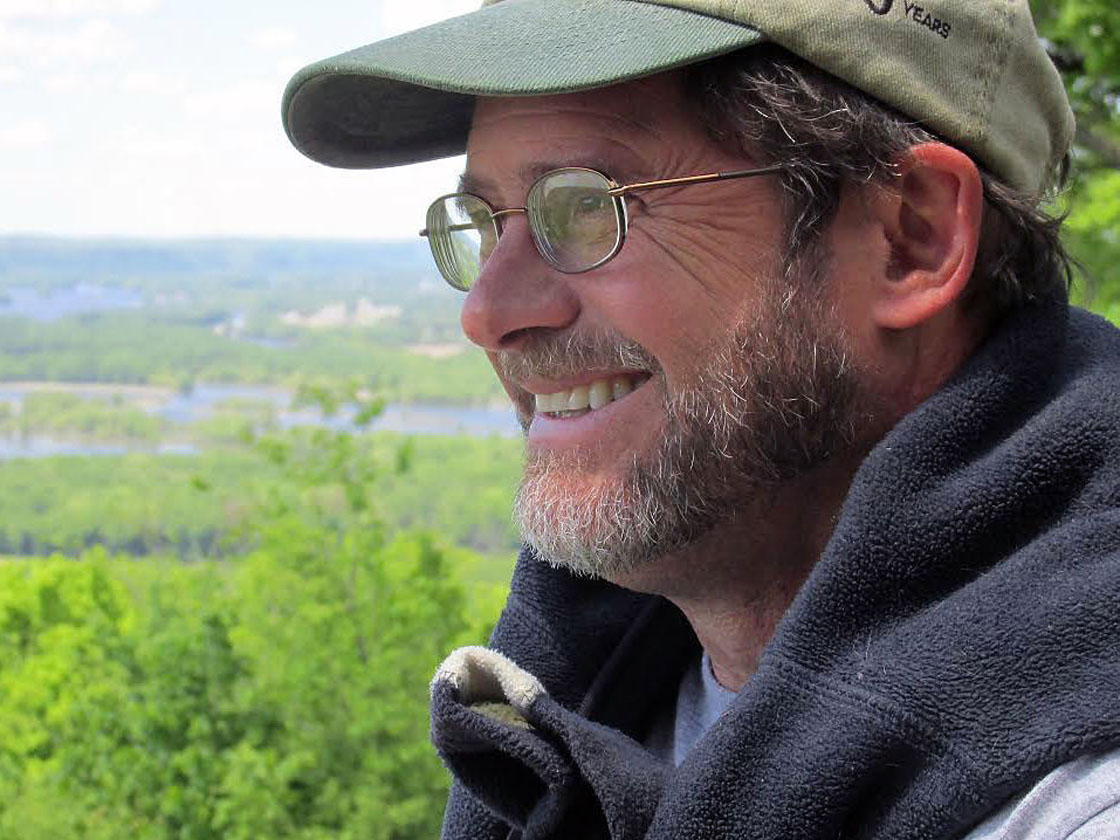 Charlie Luthin
Charlie Luthin
In 2003, he was named executive director of the Natural Resources Foundation (NRF) of Wisconsin, a post he held for nine years. During that time he raised and oversaw a $1.3 million annual budget, a staff of eight and a diverse set of conservation programs throughout Wisconsin, including successful public lands initiatives with a focus on state natural areas and endangered species. He founded and built the Wisconsin Conservation Endowment to serve as a "community foundation" for conservation throughout Wisconsin. The endowment is currently comprised of 100 separate funds with combined assets totaling $7 million. Under Luthin’ s leadership, the NRF, through its Bird Protection Fund, awarded crucial funding to Bird City Wisconsin in 2012 and since made it one of its priority projects through 2019, helping it to recognize 100+ communities in Wisconsin and launch companion programs in several nearby states. The NRF also provided the bulk of project funding to support the Wisconsin DNR’s involvement in the Kirtland Warbler Recovery Project, with Luthin giving the project his personal attention. In his final year leading the NRF, Luthin championed the creation of an endowment fund that provides permanent funding for habitat management projects on land owned or managed by the DNR. The Cherish Wisconsin Outdoors Fund, which reached the $1 million milestone last year, was created in 2012 through unanimous bipartisan legislation to "protect, restore and improve habitat for Wisconsin's plants and animals" on state-owned lands.
In 2016, he was invited to serve as Sauk Prairie Conservation Alliance’s first director, considering it a great end-of-career position having been one of the Alliance’s founders in 1997 following the decommissioning of the Badger Army Ammunition Plant. Since 2012, Charlie has operated a conservation consulting firm and was hired by WSO in 2015 to serve as a grant writer and fund-raiser for the second Wisconsin Breeding Bird Atlas. He joined the Atlas Steering Committee and as the project’s development director, formulated the project’s annual budgets and been principally responsible for raising more than $770,000 to fund the project’s field work and pre-publication costs.
For leading many of the state’s most important conservation organizations, WSO recognizes Charlie Luthin for the Noel J. Cutright Conservation Award.
Dick Nikolai
Bird enthusiasts of Wisconsin have a long history with the purple martin, a species reliant on humans for nesting and for hundreds of years have constructed elaborate nest boxes to attract and house these charming birds. Retired DNR Wildlife Biologist Dick Nikolai, who now spends much of his time traveling throughout the state banding Purple Martins on behalf of the Wisconsin Purple Martin Association, began connecting with martins as a youngster at his grandfather’s home. He received his banding permit in college and started banding waterfowl—then, after graduation (with a sub permit) began banding Purple Martins. In 1988, he attained his Master Permittee designation (specific to the study of Purple Martins) and has since become the states expert and go-to person for this species.
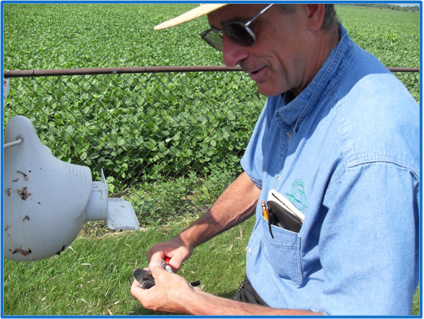
Dick Nikolai
In the 1990’s Dick began to give talks statewide. When the first Breeding Bird Atlas project came about, he provided important information on martins for the book. He has banded over 20,000 purple martins and has recaptured over 2000 that either he has banded or from other banders. In actuality, he has banded over 25,000 birds under two separate banding permits, one being the WDNR. Part of his years of banding study was comparing urban versus rural martin colonies, from eggs laid to fledging young, to compartment sizes, types of housing, longevity, site fidelity, pair fidelity, and age of pairs. From there it has expanded to looking at weights, size of birds, interchange of housing, and many more aspects. His data has now been placed onto spreadsheets and is being analyzed. In his retirement he is still banding martins at various colonies throughout the state, and other birds when there is opportunity. Recently he has installed geo-locators on select adults at the High Cliff colony. It is so fitting that Dick Nikolai should receive the WSO Noel J. Cutright Award for his many years of devotion to this species—this is his reply in hearing the news of his award:
“Noel Cutright and I had many conversations about Purple Martins, especially along the shores of Lake Winnebago. Noel brought the fight forward for this important species to be listed as a "Watch" species in Wisconsin. Purple Martins seem to bring the best of all people including children as they are humbled by chortling voices singing when they come nearby to greet them. Over my life time from abundance of this species being everywhere to its retreat mostly in East Central Wisconsin, Purple Martins have a true connection with humans. They truly know who we are. That is what makes it so inviting—the connection of handling, caretaking, banding, monitoring, greeting and sending them off each year. Silence of this partner would be a great disaster. That is why the passion to pass on what we know to keep this species coming back. Nothing is ever a guarantee unless we all work forward with our passion to create habitat and use our expertise for the generations to come.”
